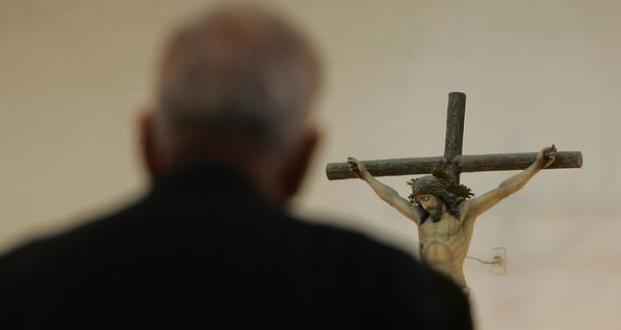Betrayed but Still Extends Mercy: Reflections on the Betrayal of Christ

My dear brothers and sisters in Christ,
The betrayal of Christ by Judas Iscariot is one of the most tragic and heart-wrenching events in the Gospel narrative. Judas, one of the twelve disciples, who had been with Jesus for three years, betrayed Him for thirty pieces of silver. He led the soldiers to Jesus and identified Him with a kiss. This act of betrayal ultimately led to the death of Jesus on the cross.
The betrayal of Christ by Judas serves as a powerful reminder of how we too can betray Him in our daily lives. We betray Him when we prioritize our own desires over His will, when we succumb to temptation and sin, when we deny Him in word or deed, and when we fail to live out our faith in our interactions with others.
However, the good news is that just as Jesus did not abandon Judas, He does not abandon us in our moments of betrayal. He calls us to repentance and offers us the sacrament of reconciliation as a means of receiving His forgiveness and healing.
The sacrament of reconciliation, also known as confession, is a sacrament of healing and reconciliation. It is an encounter with the mercy and forgiveness of Jesus Christ, who desires to restore us to a state of grace and communion with Him. Through this sacrament, we confess our sins to a priest, who acts in the person of Christ, and receive absolution and penance.
The importance of the sacrament of reconciliation cannot be overstated, especially in countering our tendency to betray Christ. It allows us to acknowledge our sins and weaknesses, and to receive the grace and strength to overcome them. It also helps us to grow in humility, self-awareness, and accountability, as we seek to live more fully in Christ.
Moreover, the sacrament of reconciliation gives us hope in the midst of our struggles and failures. It reminds us that no matter how many times we may fall, Jesus is always ready to pick us up, dust us off, and set us on the path of redemption and salvation.
However, it is important to note that the sacrament of reconciliation is not just a one-time event, but a lifelong journey of conversion and growth in faith. We must continually examine our consciences, confess our sins, and strive to live in a manner that is pleasing to God.
Furthermore, the sacrament of reconciliation is not just about receiving forgiveness and healing, but also about extending forgiveness and healing to others. Just as we have been forgiven by God, we are called to forgive those who have wronged us and to seek reconciliation with them. This can be a difficult and painful process, but it is essential for our spiritual growth and well-being.
In addition, it is important to recognize that the betrayal of Christ is not just a historical event, but a present reality in our world today. We see it in the countless acts of injustice, violence, and oppression that are committed every day. We also see it in the ways that we as individuals and as a society fail to live up to the values and principles of the Gospel.
However, even in the midst of this betrayal, we have hope in Jesus Christ, who conquered sin and death through His death and resurrection. He calls us to work for justice, peace, and reconciliation in our world, and to be instruments of His love and mercy to those around us.
As we reflect on the betrayal of Christ and our own tendency to betray Him, let us turn to Him in repentance and receive His forgiveness and healing through the sacrament of reconciliation. Let us also seek to forgive others as we have been forgiven, and work towards building a world that reflects the love and mercy of Christ.
Let us pray.
Heavenly Father, we acknowledge our tendency to betray You through our sins and weaknesses. We ask for Your forgiveness and healing through the sacrament of reconciliation. Help us to grow in humility, self-awareness, and accountability, and to be instruments of Your love and mercy to others. Give us the grace and strength to forgive those who have wronged us, and to work for justice, peace, and reconciliation in our world. We ask this in the name of Jesus Christ, our Lord and Savior. Amen.






